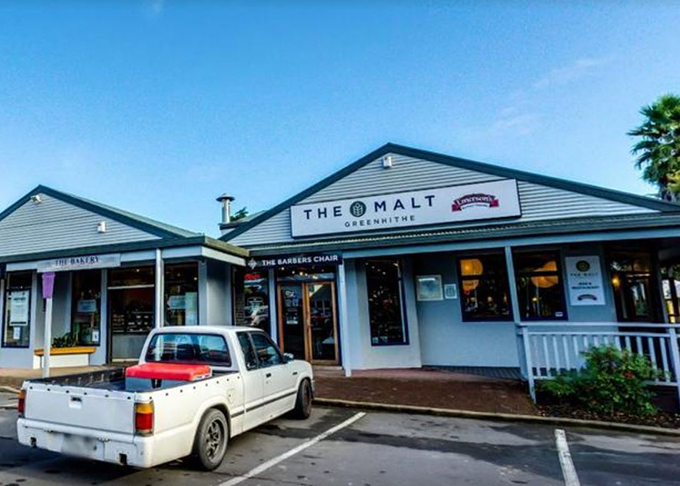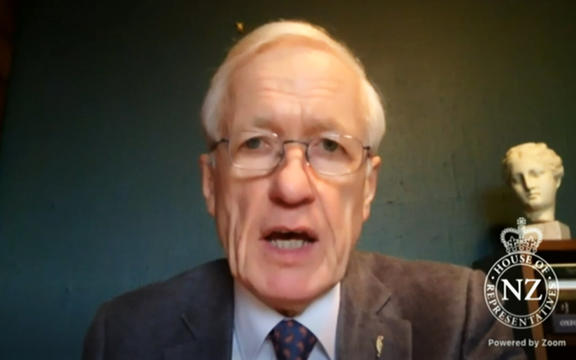
By RNZ News
Epidemiologist Sir David Skegg is concerned at the level of complacency the public and government is showing towards covid-19 since the country reverted to alert level 1.
It comes following the revelations that an unknowingly infectious person visited an Auckland pub on Friday 16 October, as well as the influx of new imported and isolated cases at the Sudima Hotel in Christchurch where hundreds of members of a fishing crew are staying in managed isolation.
A pop-up community testing centre was being set up in Greenhithe today for members of the public.
- READ MORE: Al Jazeera coronavirus pandemic: ‘A long slog’: IMF says Asia faces a slow recovery
- Russian fishing crew not feeling too unwell, says Sealord boss
However, the owner of The Malt pub in Greenhithe, where the infectious person visited, told RNZ’s Morning Report that when he went to get tested on Wednesday night he was told by staff to come back on Thursday for a test as the wait time was over three hours long.

Sir David, an epidemiologist at the University of Otago Medical School and former chair of the Public Health Commission, told RNZ Nine to Noon the messaging from the government was not clear enough and was leading to a cavalier attitude among the public.
“I think we all have to bear in mind the possibility, or in fact the certainty, that this virus is going to get into our community from time to time,” he said.
“There will be increasing pressure to relax our borders which clearly has happened with these deep sea fisherman and I think the rest of us need to behave with that knowledge.
”I’m really concerned’
“I’ve been really concerned now for two or three weeks – I still always use my app to record a QR code, I hardly ever see anyone else do it. I haven’t flown recently…
“People tell me most people aren’t wearing masks on the plane and again the government gave the wrong message there, I think, because I think people have just been led to believe that we’ve defeated this virus and we haven’t.
“It’s going to keep happening – and if we want to avoid lockdowns we’re going to have to change our behaviour.”
Sir David also believed officials had dropped the ball over the bunking of rooms at the Sudima Hotel in Chrischurch.
“Having people two to a room is sloppy procedure, it doesn’t make sense because it’s quite easy to work out that one person could infect the other who would not give a positive test before they come out into the community, so it just defies the principles of quarantine,” he said.
“To have a whole lot of people who have come from a country [Russia] with one of the highest incidences in the world, two to a room, I can only assume it was done as an economy measure to save the company, who are presumably paying for this quarantine…
“I sort of feel that it’s worrying that this kind of thing is happening, it almost seems as though the authorities don’t understand that the epidemiology is a disease.”
Clock reset to zero
Yesterday, the head of Managed Isolation and Quarantine, Air Commodore Darryn Webb said that if a crew member at the Sudima Hotel tested positive for the virus, then the clock would reset to zero for the person sharing a room with that person.
That would mean they would have to stay on an additional 14 days in managed isolation to ensure they aren’t infectious when they enter the community.
If someone in NZ really did get infected after just 3 mins contact then looks like we’re going to need to be isolating all casual contacts as well as close, or redefining what we mean by close.
— Dr Siouxsie Wiles (@SiouxsieW) October 21, 2020
Sir David said the testing surveillance throughout could also be stronger.
Yesterday more than 7000 tests were conducted, raising the rolling weekly average to 4449.
He said it was hard to know if that was enough.
“Certainly my anecdotal observations, talking to people who have had symptoms that could’ve reflected covid-19 suggest to me we’re not testing as consistently as we should,” he said.
“But testing is just one of the things, we need to keep practising sensible physical distancing, I’m trying to avoid shaking hands with people, it’s actually quite awkward, but actually shaking hands is a great way of passing viruses around.
“We just need to be vigilant because we’re so lucky in New Zealand, we’ve done so well, we’re enjoying freedoms and security that just are a distant memory in most countries, but we shouldn’t assume this is going to go on forever if we don’t take precautions.”
Sir David said the government should enforce the wearing of masks on public transport during the Labour Day long weekend to help stop any further community spread of covid-19.
This article is republished by the Pacific Media Centre under a partnership agreement with RNZ.
- For up-to-date information on testing locations in Auckland call Healthline on 0800 358 5453 or visit the ARPHS website.














































